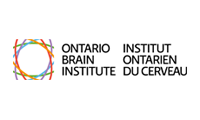Western researchers develop new brain scan analysis to better treat head injuries
An international research team, led by neuroscientists at Western University, has developed a potentially game-changing method for analyzing brain scans, which will greatly inform radiologists and surgeons examining and treating patients with head injuries.
Currently, functional MRI scans are predominantly converted into spatial maps and studied using a technique known as independent component analysis, which is highly detailed and reveals an abundance of critical information about the patient but is displayed as a chaotic, multi-layered image that is very difficult to declutter.
In a study, published by the journal Brain and Behavior, the researchers detail a new technique that allows the neural pathways and networks of the brain to be analyzed using mathematical graph theory or quite simply, single, decompressed layers of the original multi-layered brain scan.
Andrea Soddu and Demetrius Ribeiro de Paula from Western’s Department of Physics &Astronomy, as well as Adrian Owen, the Canada Excellence Research Chair in Cognitive Neuroscience and Imaging at Western’s renowned Brain & Mind Institute, were principal investigators in the study.
Comparing traditional techniques to studying merchandise transportation flow between Toronto and Montreal, Soddu explains that while it is easy to see that the volume is high between the two major Canadian cities, using standard methods, it would be nearly impossible to identify whether the products were shipped by plane, train or transport truck.
“Instead of having just one graph that is overwhelming and you really just see the overall shape and dark and lights spots, you can now recognize the formal network and very specific regions of the brain that are affected or not affected by something like a lesion or a tumor,” says Soddu. “This is obviously vital information for radiologists, surgeons and all health care providers.”
Soddu and his team are now working with Blaine Chronik, a Robarts Research Institute scientist, a professor in Western’s Department of Physics and Astronomy and the NSERC-Synaptive Medical Senior Industrial Research Chair in MRI Systems Development, to bring this technique to industry partners for the development of surgical interventions.
MEDIA CONTACT: Stephen Ledgley, Senior Media Relations Officer, 519-661-2111, ext. 85283, sledgley@uwo.ca
ABOUT WESTERN
Western delivers an academic experience second to none. Since 1878, The Western Experience has combined academic excellence with life-long opportunities for intellectual, social and cultural growth in order to better serve our communities. Our research excellence expands knowledge and drives discovery with real-world application. Western attracts individuals with a broad worldview, seeking to study, influence and lead in the international community.
Follow Western Media Relations online:
Website: http://communications.uwo.ca/media/
RSS: http://feeds.feedburner.com/MediaWesternU
Twitter: https://twitter.com/mediawesternu










